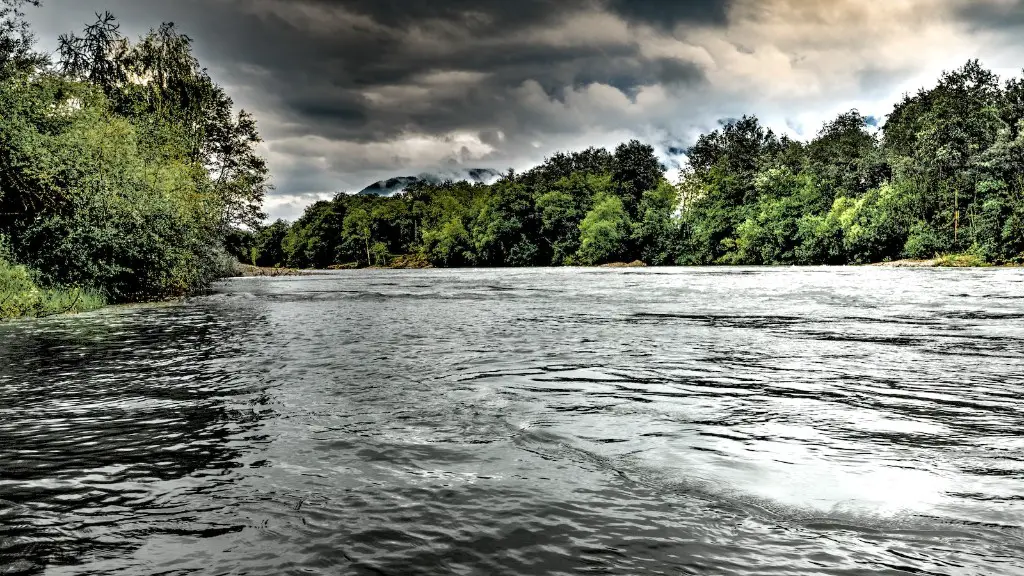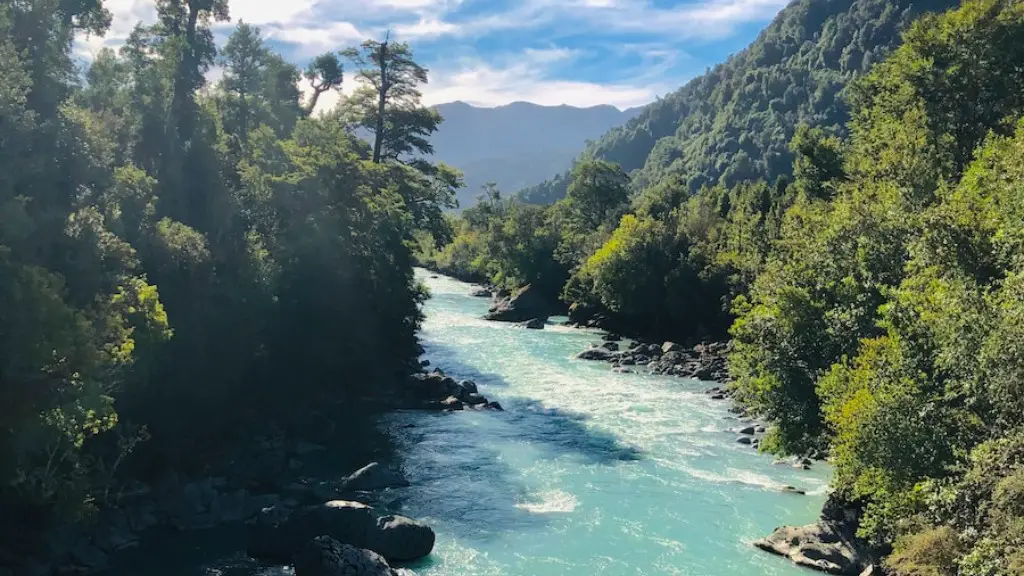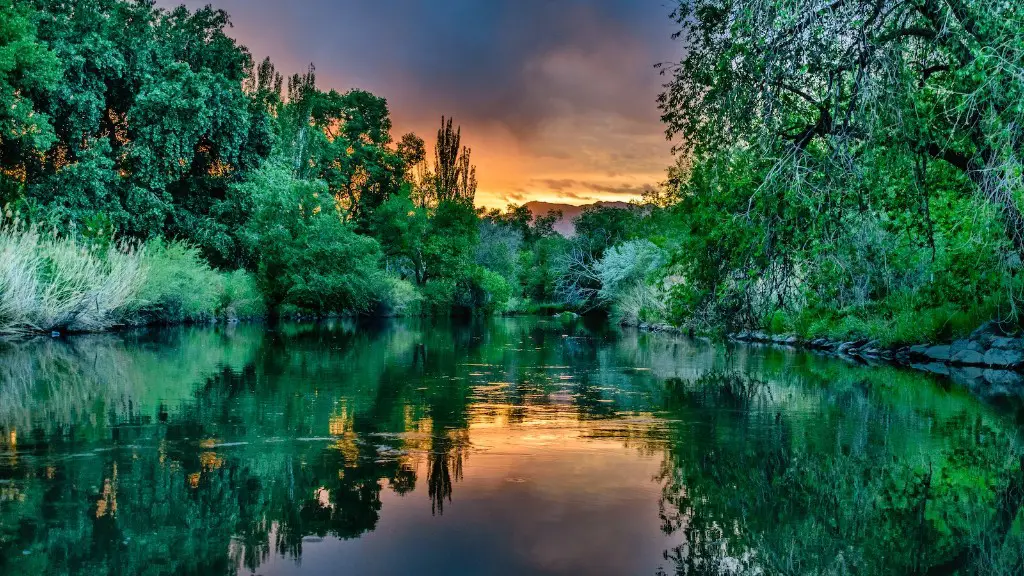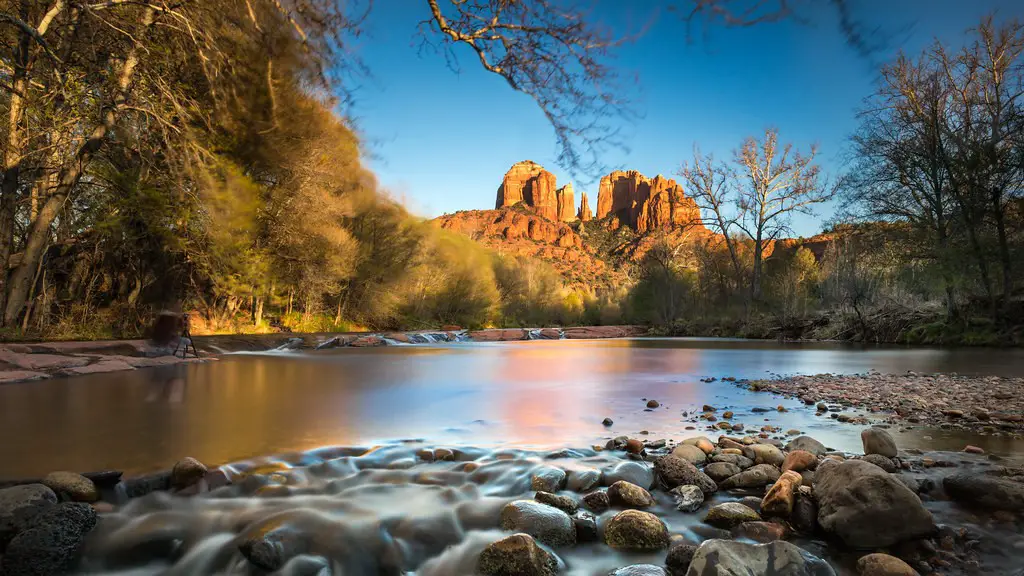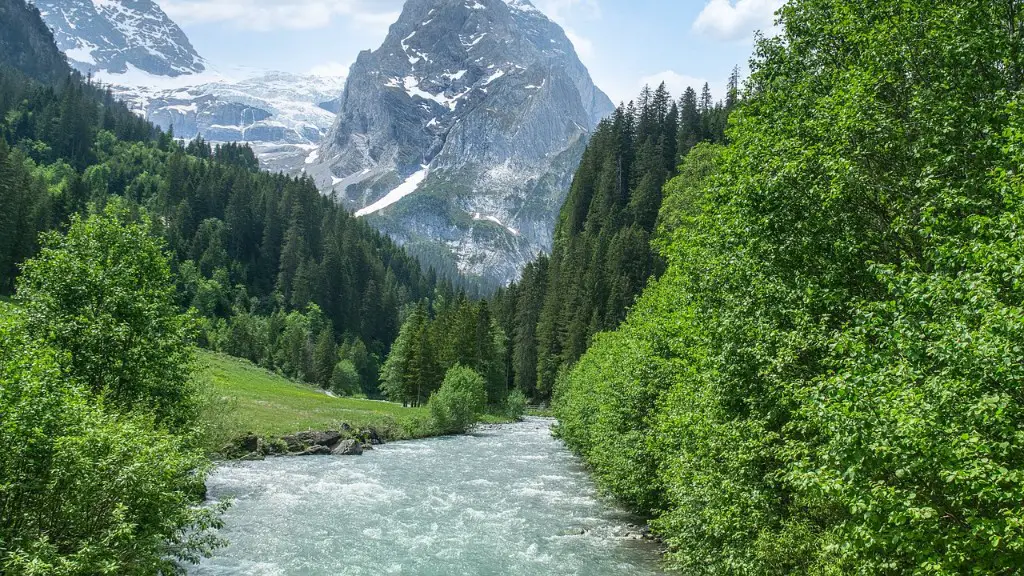History
The Mississippi River is one of the most prominent and powerful rivers in North America. It begins in Minnesota, flows south through ten states, before finally emptying into the Gulf of Mexico. It has been a major player in the history of humanity from the time of the Mississippian cultures to the present day. The Mississippi has served as the artery for transportation, wound its way through wars and has been the site of America’s struggle for civil rights.
The Mississippi River was a major highway for Native Americans, Spanish, French, and eventually American settlers as it allowed them to navigate further into the interior of North America. It was during this time that many Indian cultures flourished on its banks. Furthermore, the river was a major battlefield during wars such as the American Revolution and the Civil War. The Battle of New Orleans, which ended the War of 1812, took place on the Mississippi River.
The Mississippi River is a major factor in the American economy. It is a major part of the U.S. waterways system and has been used for commercial and agricultural purposes for centuries. This is especially true for the Southeast part of the country which houses some of the largest ports and industries along the river. Many industries are dependent on its existence. Moreover, hydroelectric power from the river provides electricity to millions of homes and businesses in the US.
Environmental Effects
The Mississippi River has a long-standing impact on the environment. The sediment delivered by the Mississippi through its banks and delta could have an effect on the Gulf of Mexico’s coastal wetlands. As well as providing nutrients such as phosphates and nitrogen to the gulf’s waters, these sediments also help to create barriers between open water and wetlands. Further, an increase in sediment could result in an increase in the frequency of flooding in the area.
The health of the Gulf of Mexico is related to the health of the Mississippi River. The river significantly affects water quality in the gulf. In southwest Louisiana and Mississippi, chemical plants and oil refineries have been polluting the river for years, and the waste has been carried into the gulf by the river’s current. This has caused serious harm to the environment, including fish and wildlife populations.
To help preserve and protect the environment of the Gulf, there have been many initiatives such as the Clean Water Act and the Great Waters Collaborative. These are designed to limit and reduce the environmental consequences of the delta’s industry, such as reducing agricultural runoff, restoring wetlands, monitoring water quality, and protecting aquatic and plant life.
Economic Impact
The economic impact of the Mississippi River is felt in many parts of the United States. It supports many jobs in various industries, from the shipping sector to natural resources extraction. Millions of Americans depend on jobs related to the Mississippi River, including farmers, shippers, dock workers, trappers, commercial fishermen and more. The economic importance of the river is a huge part of the Southeast’s identity and its history.
In addition, the river serves as an important transportation route for cargo shipping. Around 35% of all grain exports from the United States are delivered down the Mississippi River. This is why states and local communities along the river rely so heavily on this waterway for their livelihoods. Shipping activity on the Mississippi supports jobs and growth of the economy in general.
In the wake of major floods, the river has been highly beneficial for increasing the amount of floodplain soil, and providing a more productive landscape for farming, forestry, and recreation. This has helped to improve the living standards and quality of life along the banks of the Mississippi River, a major economic benefit.
Ecological Implications
The ecology of the Mississippi River basin is of special importance. Its water helps sustain diverse bird, fish, and other animal species. The Mississippi River is the fourth-longest river in the world and a vital source of fresh water. It not only serves as a much-needed source of water for cities, towns, and farms—it also supports delicate, biologically diverse aquatic habitats and forms a major migration corridor for many species of fish and other animals.
The importance of the Mississippi River for wildlife populations is not to be underestimated. It is home to more than 700 species of fish and 300 species of birds. The Mississippi River is also an important habitat for several threatened species, including the bald eagle and the endangered pallid sturgeon. Moreover, it serves as a crucial stop-over for migratory waterfowl and other animals.
The migration of many species of fish, birds, and aquatic life along the Mississippi River supports local, state, and national economies. Fishing is an important industry and popular recreation in the region. Anglers flock to the riverbanks in search of that big catch. Hunting is also popular in the region and is a great source of outdoor recreation and economic development.
Agricultural Role2>
The Mississippi River has been a major agricultural artery since ancient times. It is rich in fertile floodplains and its tremendous deposits of rich silt provide rich and trampable soils. This makes it ideal for the production of various crops, including corn, soybeans, and cotton. Agriculture has been the main source of income for many rural areas since the early 1800s.
The agricultural sector depends heavily on the Mississippi River’s water. The river provides water for irrigation, crop production, and livestock production. Without the river’s abundant water, these families and communities would not be able to support their crops and livestock. Thus, if the Mississippi River were to be polluted or its flow regulated, it would have a devastating effect on the agricultural industry of the Southeast.
Moreover, the levees and dams along the river regulate flooding. The Army Corps of Engineers controls the flow of the river and can divert or block it to prevent floods from damaging property. This helps protect the rural agricultural communities along the river from devastation from floods, allowing then to grow their crops in peace and safety.
Floods and Droughts
The Mississippi River has been a frequent victim of both floods and droughts. The river’s location in the North American continent places it in a region that often experiences extreme weather conditions that can cause severe flooding. The most destructive flood in US history took place in 1927 when the Mississippi overflowed its banks. The destruction of property and loss of life caused by the flood made it one of the most costly natural disasters in US history.
On the other hand, the Mississippi River has also experienced severe droughts. The worst drought in the US occurred in 1988, which has been called the “great drought of 1988.” This drought severely impacted the region, not only by reducing the flow of the river but also by reducing agricultural production and threatening the livelihoods of millions of Americans. The prevalence of droughts along the Mississippi River have been an ongoing concern for many years.
In recent years, much of the attention has been focused on the Mississippi River’s ability to handle large volumes of water when it floods. The Army Corps of Engineers are now constructing levees and levee dams that are designed to reduce the effects of floods and droughts on the region. This is helping to protect the river and the communities downstream.
Climate Change Impact
The Mississippi River is affected by climate change, with rising temperatures, rising sea levels, and increasing amounts of precipitation. As a result, the water level in the river can vary significantly and can cause major problems for those living nearby. Furthermore, the changing climate can cause a change in breeding cycles and migration patterns of the river food web.
The impact of climate change on the Mississippi River is not limited to temperatures and water levels. The increased temperatures and amount of water in the atmosphere can also cause a decrease in freshwater levels in the river. This can have serious implications for the health of the local communities and economies that rely on the river for their livelihoods.
Finally, climate change also affects the river’s ecosystem by reducing the amount of oxygen in the water. As the temperature of the river rises, the amount of dissolved oxygen decreases. This has a negative impact on the health of aquatic life such as fish, birds, and other species that rely on the river for survival.
Preservation Efforts
Given the impact of the Mississippi River to the environment, economy, and ecology of the Southeast region, it is now more important than ever to protect and preserve its many wonders. Various conservation efforts are underway to protect the river from pollution and other harmful activities.
For instance, the U.S. Environmental Protection Agency has begun to enforce stricter pollution regulations on industries located near the river. This is in order to reduce the amount of industrial waste entering the river and ensure that it is safe for the people, plants, and wildlife that call it home.
Furthermore, there are many organizations and NGOs dedicated to the conservation of the Mississippi River and its watershed. One example is the Mississippi River Network which seeks to increase public awareness of the unique ecology, economy, and history of the river. The network also advocates for wise and sustainable management of the river and its resources.
Additionally, many communities along the Mississippi River are taking steps to protect the environment. These include reducing agricultural runoff, restoring wetlands, monitoring water quality, and protecting aquatic and plant life. These steps are necessary in order to ensure the continued health of the Mississippi River and all the wonders it provides.
